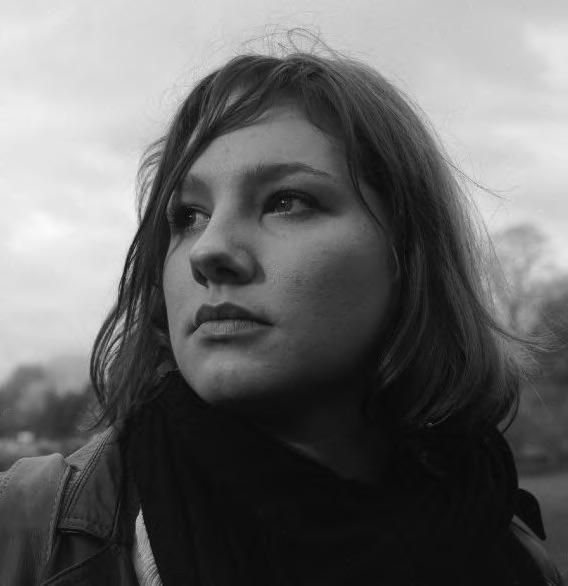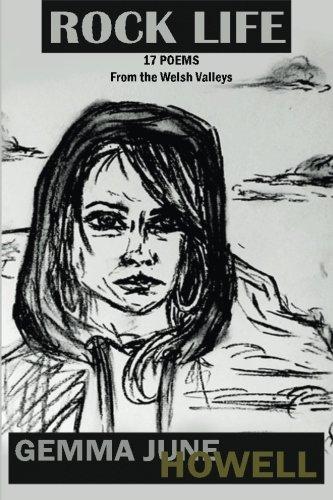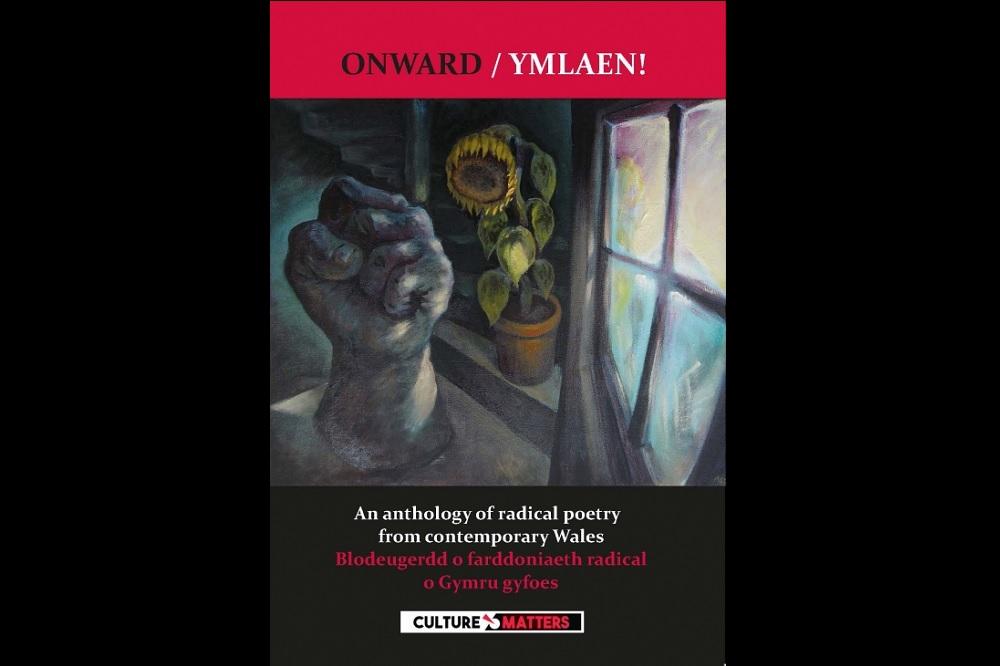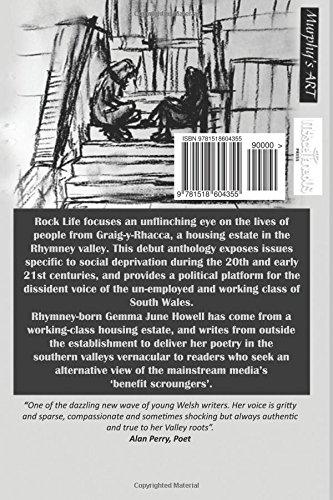'vim and raw energy'
As a poet, Gemma's work is a testament to the transformative power of language. Her poems explore the complexities of identity, memory, and belonging, while also addressing some of the most pressing social and political issues of our time.
Gemma became a member of The Red Poets when she was 16 and began writing dialect poetry. In 2021, she was invited to present her work on BBC Radio 4 'Tongue & Talk: The Dialect Poets' where she was hailed the first woman to write dialect poetry from the Rhymney valley, South Wales. Her work has been published extensively with The Red Poets and Culture Matters.
Record of oral histories
Gemma June Howell's debut poetry collection, Rock Life, is a powerful and moving exploration of the experiences of working-class communities in Wales.
Through a series of vivid and evocative dialect poems, Gemma captures the grit and resilience of a people who have faced decades of economic hardship and social marginalisation.
Gemma June Howell's voice is a vital one in contemporary literature and this collection is a must-read for anyone who cares about the lives and struggles of working-class communities.
40 years on from the miners strike, these poems are an important record of the oral histories, marking the legacy of industry, the deprivation of the post-industrial era and the ongoing battles for social and economic justice in the region.
Nation Cymru Review: Onward/Ymlaen!
‘Elsewhere poems such as ‘Benefit Fraud’ and ‘Another Bun in the Oven,’ written in a jaunty and humour-filled demotic by Gemma June Howell, pulse with vim and raw energy, depicting life as a Caerfilli job seeker accused of cheating the system or a single mother’s travails to stay afloat on an estate such as Graig-y-Rhacca:
My muvva wun elp me,
cuz I nict er tellee.
An my ole man iza preck.
Ee puncht er in th’bellee.’
'Documentary on the page'
“These poems are sitting down for breakfast with a reality sandwich. Documentary on the page. Sometimes like a West Indian Dub Poet, the author chooses to write English not as we are taught it in the schoolroom, but rather how we hear it in our communities. She writes it how it sounds on the street.”
The Cardiff People's Assembly



